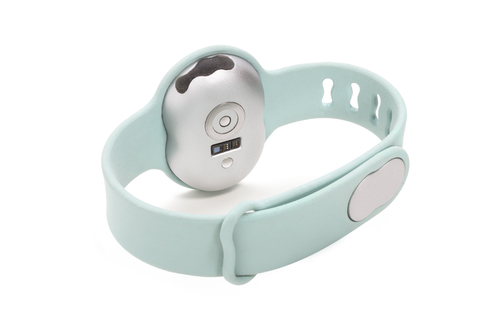UK launch of world's first fertility monitoring bracelet
ZURICH – January 24th, 2017: Ava, a Swiss medical technology company focused on innovations in women’s reproductive health, today announced the official European launch of its first product—the Ava bracelet, a cycle-tracking wearable that uses new technology to detect a woman’s fertile window.
Launched in the US last summer and already claiming nearly a dozen confirmed pregnancies among the earliest US users, Ava will now be available for purchase to consumers throughout Europe for the first time this week via www.avawomen.com.
Ava is the first wearable device designed to track, visualise and understand the menstrual cycle in real time. Whether a woman wants to get pregnant or simply better understand her body, Ava provides a level of insight that has never been available outside of a clinical setting.
Specifically for women trying to conceive, the Ava bracelet sensors track physiological parameters that correlate with the rise in reproductive hormones estradiol and progesterone. The parameters tracked include pulse rate, breathing rate, sleep, heart rate variability, temperature, and more. The rise in these hormones is used to detect an average of more than five fertile days per cycle in real time.
As users simply wear the Ava bracelet while sleeping and sync it with the Ava app in the morning, they avoid the hassles, mess and invasiveness of other fertility tracking methods like ovulation strips and BBT thermometers.
Registered as a Class 1 medical device in the US, the Ava bracelet was proven in a clinical study at the University Hospital of Zurich to detect an average of 5.3 fertile days per cycle with 89% accuracy. The year-long study was conducted under the leadership of Prof. Brigitte Leeners, a leading expert on the mathematical modelling of menstrual cycles. A second clinical study, also led by Prof. Leeners, is currently underway with results expected later this year.
“Women spend so much time and emotional energy trying to accurately track their cycles, often using multiple methods in tandem,” explains Prof. Leeners. “Specifically, timing intercourse around ovulation is critical for conceiving, but the current options for doing so are inadequate. We’re long overdue for a device like Ava that detects the fertile window precisely and easily.”
According to Ava co-founder Lea von Bidder, fertility tracking is just the beginning of exciting possibilities for Ava’s cycle-tracking technology. She points to research the company is planning to further refine its algorithms for use in pregnancy monitoring, and possible use as a non-hormonal contraceptive device.
"Many women don't realise how central a role the menstrual cycle plays in understanding their overall health," says von Bidder. "In the past, precise information about the cycle was so difficult to come by that only women who were trying to get pregnant would go through the trouble. With Ava, we're making it easy for all women to get more information about their cycles than has ever been available, more easily than ever before."
The bracelet is available for purchase now from the Ava website for £199.
ENDS
For further information and / or to arrange and interview please contact:
Kevin Maxwell
Maxwell Communications
(m) 07985 351 797
(e) kevin@maxwellcomms.com
A range of high-resolution images can be downloaded here.
About Ava:
Founded in Switzerland in 2014 by industry leaders in wearable technology, women’s health, and data science, Ava is a medical technology company dedicated to bringing innovation to women’s reproductive health.
The Ava bracelet is the company’s first consumer product. It uses new technology to precisely detect a woman’s entire fertile window in real time.
The company is conducting further clinical studies to refine its algorithms for use in pregnancy monitoring, and possible use as a non-hormonal contraceptive device.
Backed by USD$12.3m in seed and Series A funding, Ava has operations in Zurich and San Francisco.
Facts and figures:
In the US, $5bn a year is spent on assisted reproductive technology treatments
The global fertility testing market is worth $151m and is forecast to grow at 7.5% annually to reach $216.8m by 2020
There is no solid evidence that costly add-on treatments currently offered by UK fertility clinics actually work
This press release was distributed by ResponseSource Press Release Wire on behalf of Maxwell Communications in the following categories: Health, Women's Interest & Beauty, Medical & Pharmaceutical, for more information visit https://pressreleasewire.responsesource.com/about.
